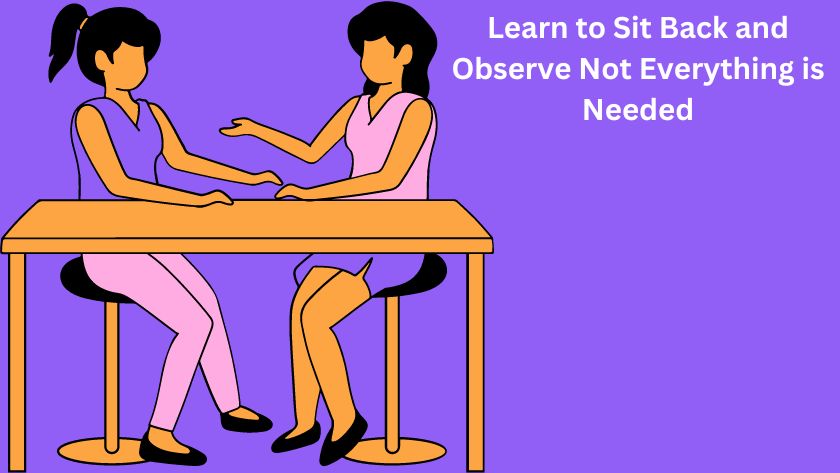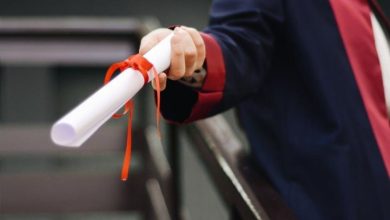Learn to Sit Back and Observe Not Everything is Needed – Tymoff

Learn to Sit Back and Observe Not Everything is Needed – Tmyoff It is simple to lose sight of the importance of pausing in our hectic, action-packed environment to simply observe. Patience is key; not every task requires immediate action. Often, it’s best to step back and contemplate before acting. At Tymoff, recognizing observation’s value in daily life underpins methodology, fostering deeper understanding. Better informed decisions, deeper understanding, and more meaningful lives emerge when we learn to sit back and observe.
Understanding the importance of Observation
Although we frequently overlook observation in our haste to act, its importance cannot be emphasized. A window to the world, observation captures details often missed amid the rush of daily activities. By paying close attention, we can pick up on the nuances of our surroundings and the complexities of human behavior, which broadens our perspective and gives us the skills we need to overcome obstacles with more skill.
Observational ability extends beyond sight, involving active interaction with the environment, filtering distractions to concentrate on essential aspects. It involves sharpening your sense of awareness, spotting patterns, and comprehending how various components interact with one another.
Patience is an Art
Being patient is not just about waiting patiently; it’s also about making the deliberate decision to respect time. This intentional pause enhances our ability to notice and comprehend the subtleties of our environment by allowing for a deeper immersion into the present.
It takes courage to practice patience in a society that frequently values rapid satisfaction and quick cures. Resilience is needed to withstand the strain of making snap decisions and hasty decisions and to let the circumstances unfold naturally guide our actions.
Importance of Observation
While action may be tempting, observation proves a potent strategy for effective problem-solving in tackling challenges. By dedicating time to closely observe the nuances of a problem, we allow ourselves the opportunity to understand its true nature and scope. This deliberate approach helps in uncovering hidden aspects and variables that might not be immediately apparent. Through observation, patterns begin to emerge, offering clues that guide us toward innovative solutions. It fosters a deeper level of thinking, encouraging us to question assumptions and explore various angles.
Practical Tips for Becoming a Better Observer
- Try incorporating some of these doable tactics into your everyday routine to improve your observation skills. First, allocate periods of quiet observation in your day, where you do nothing but observe your environment and the people within it. This could mean watching the interactions at a coffee shop or simply observing the natural world during a walk.
- Keeping a journal dedicated to these observations can also be beneficial. Record not just what you see, but also any thoughts or questions that arise from these observations. This practice can deepen your understanding and encourage a more curious outlook. Another effective technique is to engage in active listening during conversations.
- This means fully focusing on the speaker, acknowledging their words without immediately formulating a response or judgment. Lastly, practicing mindfulness can greatly improve your capacity for focused observation and concentration.
- Think before you say something and try your best to be a listener rather than to be a speaker.
Conclusion
Embracing the practice of observation offers a pathway to more profound understanding and more meaningful engagement with our general surroundings. It engages us to differentiate between moments that call for action and those that benefit from our restraint. As we cultivate this expertise, we discover the value of patience and the strength tracked down peacefully and watchfully.
Observation not only enhances our decision-making and critical thinking abilities but also improves our emotional intelligence and creativity. Inviting heightened awareness, it fosters an appreciation for unnoticed life nuances, enhancing our everyday encounters significantly. In adopting this approach, we furnish ourselves with the tools to navigate the complexities of life all the more gracefully and effectively. Pause, notice, consider an invitation to investigate vast possibilities through the straightforward act of watching and learning.
FAQs
How does observation help in decision-making?
Observation sharpens our ability to gather and analyze information before making decisions. Allows noticing overlooked details, fostering informed choices by discerning patterns often missed in haste.
Can observation truly enhance creativity and innovation?
An essential talent for creativity and innovation is observation. It helps people to connect with their surroundings on a deep level, make connections, and generate fresh ideas. This process of active engagement and pattern recognition is foundational to creative thinking and developing innovative solutions.
Is it beneficial to delay action in favor of observation?
In many cases, yes. Taking the time to observe before acting can prevent premature decisions and actions. It makes it possible to comprehend the current situation more deeply, which may result in more appropriate and successful reactions. It’s crucial to strike a balance between this and understanding when prompt action is required.




